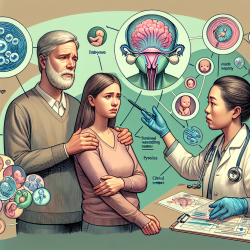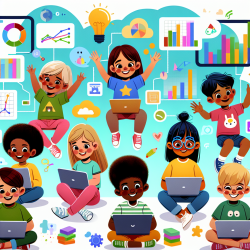Reimagining Online Therapy for Schools: Insights from Post-COVID-19 Universal Health Coverage Research
In the wake of the COVID-19 pandemic, the healthcare landscape has drastically changed, prompting a reevaluation of Universal Health Coverage (UHC) and other global health targets. The editorial "Reimagining Universal Health Coverage and other global health targets in the post-COVID-19 era" offers valuable insights that can be leveraged to improve online therapy services in schools. This blog will explore how the findings from this research can help practitioners enhance their skills and encourage further investigation.
Key Takeaways from the Research
The special issue presents a rich collection of articles focusing on various aspects of UHC, including health promotion, prevention, treatment, rehabilitation, and palliative care. Here are some of the critical findings:
- Impact of COVID-19 on Informal Caregiving: Bergmann and Wagner's study highlights the need to reduce the burden and symptoms of anxiety or depression for caregivers and care recipients.
- Health Systems Evaluation: Qazi et al. found that advanced countries had a poor response to the COVID-19 pandemic, contrary to the myth of having the best healthcare systems.
- Multidisciplinary Approach: Blasi et al. propose a multidisciplinary Think Tank to renovate healthcare systems and guarantee equal access to health services.
- Health Systems Strengthening: Cuschieri et al. emphasize the importance of public health emergency preparedness and the transition to a working syndemic model.
Implementing Research Outcomes in Online Therapy
Given the insights from the research, here are some actionable steps for practitioners to improve online therapy services in schools:
- Focus on Mental Health: Incorporate mental health support for caregivers and care recipients into online therapy sessions to reduce anxiety and depression.
- Evaluate and Adapt: Regularly assess the effectiveness of online therapy services and adapt based on feedback and new research findings.
- Multidisciplinary Collaboration: Collaborate with other healthcare professionals to provide comprehensive care, including mental health, speech therapy, and occupational therapy.
- Emergency Preparedness: Develop and implement plans for public health emergencies to ensure the continuity of therapy services.
Encouraging Further Research
While the current research provides a robust foundation, there is always room for further investigation. Practitioners are encouraged to:
- Stay Updated: Regularly review new research and publications related to UHC and online therapy.
- Conduct Studies: Engage in research to explore the effectiveness of various online therapy approaches and share findings with the broader community.
- Participate in Conferences: Attend and present at conferences to stay abreast of the latest developments and network with other professionals.
Conclusion
By implementing the outcomes of the research on UHC and global health targets, practitioners can significantly enhance the quality of online therapy services in schools. These improvements will not only benefit the children receiving therapy but also contribute to the broader goal of achieving UHC. To read the original research paper, please follow this link: Editorial: Reimagining universal health coverage and other global health targets in the post-COVID-19 era.










